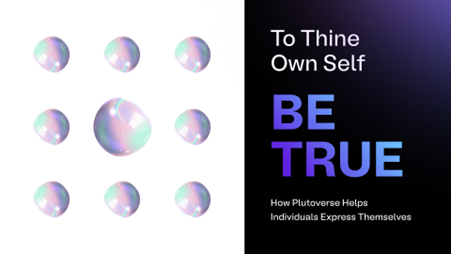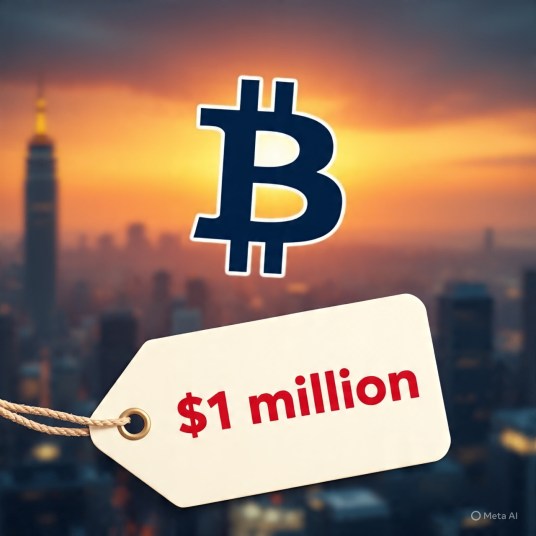Reason to trust

How Our News is Made
Strict editorial policy that focuses on accuracy, relevance, and impartiality
Ad discliamer
Morbi pretium leo et nisl aliquam mollis. Quisque arcu lorem, ultricies quis pellentesque nec, ullamcorper eu odio.
Talk about the financial and systemic benefits of blockchain technology is commonplace, and rightfully so. The metaverse works because of the underlying principles of decentralised ownership that underpin it, because of its ability to create distributed communities with genuine stakes in their virtual and actual futures.
Yet the metaverse has far more potential than simple economics, it has the ability to create a new environment where people of all ages and of every variety can come together in shared play and build their own truths together using the tools developers are building for the shared virtual heaven.
What is Plutoverse?
This is the mission of Plutoverse. The ultimate metaverse platform for self-expression. A safe, shared space of infinite possibility where like-minded individuals can come together and truly be themselves and express themselves naturally. Current social media platforms offer distorted lenses through which individuals see themselves and try to conform. The social pressure of the every day is amplified through the sustained, blaring chatter of web2, where conformity is leased through 1-size-fits-all apps and self-projection is impossible in the manacled claw of modern media.
The portals are now opening to this new world of self expression. A world where misfits come together to meet, find each other, and form communities that last a lifetime, away from the prying gaze of the intrusive, modern world. Plutoverse will be a triple-A rendered 3D world that players will build from the ground up. The fabric of the play environment will be crafted to meet the needs of the communities that inhabit it, and Plutoverse will let users propose, build, and design new parts of the world through which their Avatars run.
The Importance of Digital Identity and Avatars
Plutoverse believes that virtual identities will become ever more essential in an increasingly digitised world. The interfacing of the internet with our everyday lives continues to happen faster everyday, our digital footprints are becoming as traceable as our actual ones, or online personas as important as our real ones.
To some, this is scary, to others, it’s an opportunity for the quintessence of the human spirit to finally roam free. Ownable digital assets, including avatars, have the ability to consecrate our online persona as something of real value and actual truth. Shared game worlds owned by the players have the chance to create real, second homes for groups and individuals that have tangible value and common enterprise, protected by the underlying security of the blockchain. Digital identity then, represented through iconography like avatars, just became a lot more real.
Indeed, Avatars are the first step into the grand Plutoverse, with designs from the Tropical Cyberpunk collection already released. Plutoverse’s avatars are crazy mish-mashes of established and accepted genres of modes of being, with inspiration drawn from every field of imagination when constructing their outlandish and striking designs. The avatars are NFTs which users will soon be able to mint, and full details are to be announced on the Plutoverse Twitter.
Open Web and Open Value
Avatars and game worlds are just a few of the vehicles for self-expression that Plutoverse plans to offer as it builds its metaverse. Plutoverse, at its core, is a social multiplayer platform with a toolset that allows users to find and create unique gaming experiences that are underpinned by true digital ownership.
By creating and being themselves and adding to the Plutoverse tapestry, users can earn tokenized rewards from the Plutoverse ecosystem and other users as signals of appreciation for them being who they are.
That value is transferable, real, open, and free – the rewards are not ‘tied up’ in Plutoverse. Built on Polygon, Plutoverse is connected to the entire Ethereum ecosystem of value and, as interoperability continues, the rest of the metaverse and beyond. Plutoverse is in fact backed by none other than Polygon’s founder Jaynti Kanani.
A Place for Young People to Come
Plutoverse is chiefly aimed at millennials and zoomers who are comfortable with online participation but frustrated by the lack of control and aggressive oversight of their online interactions. Although social media and the internet in general have done much to help communities coalesce who otherwise would be disjointed, nevertheless those communities are always at risk from the platforms they congregate on, who have ultimate oversight and control over their activities and often profit from their presence.
Plutoverse puts that overnight, control, and profit into the hands of its users, whose self-expression is what makes the Plutoverse the valuable space it is, and whose users know their authority will never be – can not be – arbitrarily taken away. Plutoverse simply provides the tools and the platform for people to be what they want, with no interference.]
Plutoverse’s governance is decentralised, as befits a platform of unique individuals who all have a right to be heard. Self-expression begins with an open web, where everyone is welcome, and everyone has a voice. A metaverse of misfits who finally have a home. Prashant Shama, co-founder, says ‘creators have always been about their communities – metaverses are natively built around communities’. Plutoverse will create a place for those communities to thrive.
Be Yourself in the Plutoverse
The metaverse is in its infancy., Early efforts from corporate entities who don’t understand the space have already been roundly mocked. The metaverse needs to be built by the visionaries who understand what digital reality truly is, a transcendence to the next stage of social evolution, not a stifling layer that’s built upon what’s gone before. Plutoverse is one of those visionaries, whose focus is not on arch finance or byzantine systems, but people – and their place in the new digital world. Plutoverse’s first NFT launch is next month, and its wider launch in Q1 2023. The metaverse needs a home for everyone, and Plutoverse is making it.



























